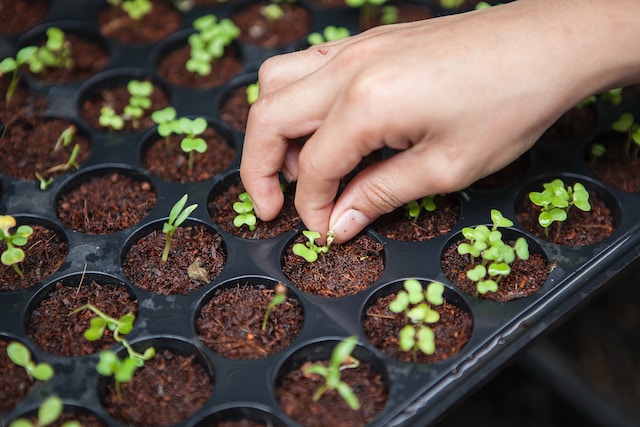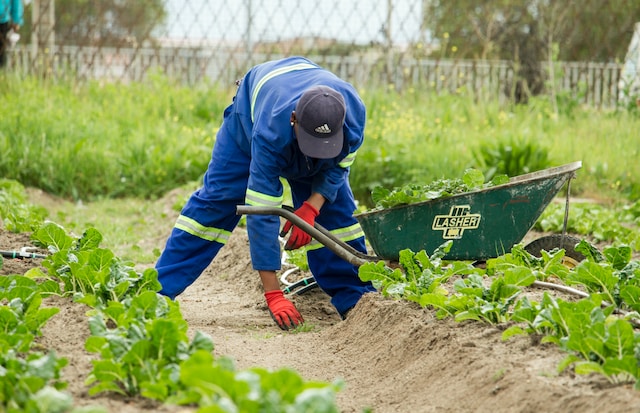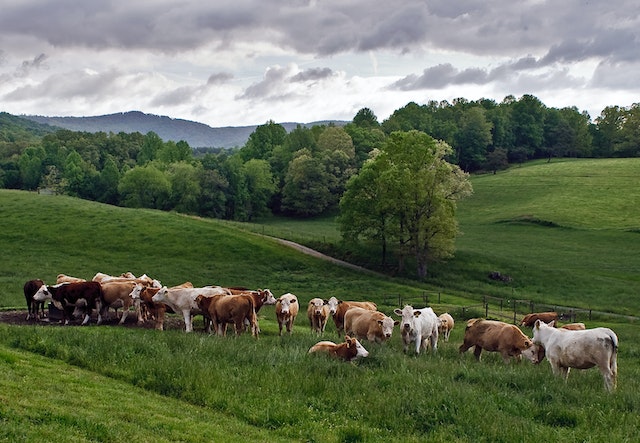
Green technology innovations in agriculture and food production are at the forefront of addressing the urgent need for sustainable and efficient ways to feed our growing global population. With the demands for food production increasing, the adoption of eco-friendly technologies becomes paramount in minimizing the environmental impact of agriculture while ensuring food security.
Sustainable Farming Practices
Sustainable farming practices are at the heart of innovations in agriculture, offering eco-conscious and resource-efficient approaches to food production. These practices aim to balance the needs of feeding a growing population while minimizing environmental impact.
Precision Agriculture: Data-Driven Farming
Precision agriculture is a key innovation in farming, leveraging technology to optimize resource use and decision-making. Modern farms employ a range of technologies, including GPS, remote sensing, and data analytics, to collect and analyze data on crops and fields. This data-driven approach enhances decision-making and reduces resource wastage.
Precision agriculture increases the efficiency of resource use, leading to higher yields, reduced inputs, and minimized environmental impact. By using resources only where and when needed, this approach reduces waste and conserves resources.
Organic Farming: Reducing Chemical Inputs
Organic farming practices prioritize the reduction of synthetic chemical inputs. In organic farming, synthetic pesticides and fertilizers are replaced with natural alternatives and integrated pest management techniques. This reduces chemical residues in food and the environmental impact of farming.
Organic farming emphasizes soil health through practices like composting, cover cropping, and reduced tillage. These methods enhance soil structure, retain moisture, and encourage nutrient cycling.
No-Till Farming: Preserving Soil Health

No-till farming minimizes soil disturbance and helps retain carbon in the soil. No-till farming avoids excessive plowing and soil disruption. By keeping the soil undisturbed, this practice preserves soil structure and reduces erosion.
Carbon sequestration, the process of capturing atmospheric carbon dioxide and storing it in the soil, is enhanced by no-till farming. This helps mitigate climate change by reducing greenhouse gas emissions.
Permaculture: Mimicking Natural Ecosystems
Permaculture is an innovative approach that mimics natural ecosystems, resulting in eco-friendly and self-sustaining farming systems. Permaculture systems incorporate diverse crops, trees, and plants. This diversity reduces the risk of pests and diseases and supports biodiversity.
Permaculture minimizes waste and resource use by creating closed-loop environments where waste products are turned into resources for other elements of the system.
High-Tech Crop Management
High-tech crop management represents a pivotal innovation in agriculture, leveraging cutting-edge technology to optimize crop production and reduce the environmental footprint. These innovations are integral to sustainable farming practices and hold the potential to revolutionize food production.
Genetically Modified Crops
Genetically modified (GM) crops are a notable advancement in crop management, offering various benefits. GM crops can be engineered to withstand drought conditions or resist pests, reducing the need for water and chemical inputs. While the adoption of GM crops raises ethical and environmental concerns, including genetic diversity and unintended consequences, sustainable agriculture seeks to address these issues while leveraging biotechnology responsibly.
Biotechnology and Genetic Engineering: Crop Resilience
Biotechnology and genetic engineering contribute to improved crop resilience and yield. Biotechnology allows for the development of crops that can withstand various stressors, such as heat, cold, or salt, expanding the range of viable agricultural lands. By developing crops with enhanced resilience and yields, biotechnology plays a crucial role in addressing global food security and ensuring a stable food supply.
High-tech crop management, including the use of genetically modified crops and biotechnology, represents a significant innovation in agriculture.
These approaches aim to enhance crop resilience, minimize resource use, and reduce the environmental impact of food production, all while ensuring food security.

Smart Irrigation Systems
Smart irrigation systems are a noteworthy innovation in agriculture, offering eco-friendly and efficient methods for managing water resources and optimizing crop growth. These systems are essential in addressing water scarcity concerns and minimizing the environmental impact of agriculture.
Automated and Efficient Water Use
Smart irrigation systems use real-time data and weather forecasts to make precise decisions about when and how much water to apply to crops. This data-driven approach ensures that water is used only when necessary. By avoiding over-irrigation, smart systems prevent water wastage and minimize the risk of waterlogged soil, which can lead to crop diseases.
Impact on Water Conservation and Sustainable Agriculture
Smart irrigation significantly reduces water wastage, conserving this precious resource and addressing one of the primary challenges in agriculture—water scarcity.

The adoption of smart irrigation contributes to sustainable agriculture by improving water efficiency, maintaining crop health, and reducing the environmental impact of farming.
Sustainable Livestock Farming
Sustainable livestock farming represents an essential component of innovations in agriculture, aiming to reduce the environmental impact of animal agriculture while ensuring responsible and ethical practices.
Grass-Fed and Pasture-Raised Livestock
Grass-fed and pasture-raised livestock graze on natural diets, reducing the need for resource-intensive grain production and decreasing the environmental footprint of animal agriculture. These practices also align with ethical and animal welfare concerns, providing livestock with more natural and humane living conditions.
Livestock Methane Reduction Technologies
Livestock, particularly cattle, are significant sources of methane emissions. Innovations in agriculture focus on addressing this issue. Innovations include the development of feed additives and dietary modifications that reduce methane production by livestock.
Sustainable livestock farming prioritizes efficient resource use, including feed, water, and land, to minimize the environmental impact. Innovations explore alternative livestock diets that reduce the reliance on resource-intensive grains and mitigate the negative effects of animal agriculture.
Sustainable livestock farming is integral to the broader innovations in agriculture, offering eco-conscious methods for animal production. These practices not only reduce the environmental impact of livestock farming but also address ethical and animal welfare concerns, contributing to a more responsible and sustainable food production system.
Food Preservation and Distribution

Innovations in agriculture extend beyond the farm gate to include advanced methods for preserving and distributing food efficiently and sustainably. Innovations in sustainable packaging include the use of biodegradable and recyclable materials that reduce the environmental impact of packaging waste. Efforts are made to reduce excessive packaging and opt for minimalist design, minimizing resource use and waste.
Reducing Food Waste
Innovations in refrigeration and cold chain management ensure that food products remain fresh and are less likely to go to waste during transportation. Efforts are made to educate consumers on the importance of reducing food waste, influencing purchasing decisions and encouraging responsible consumption.
Advancements in Transportation and Distribution
Innovations in transportation and distribution optimize delivery routes, reduce emissions, and enhance overall efficiency. The adoption of sustainable transportation methods, such as electric and hybrid vehicles, contributes to a greener food distribution system.
Future Prospects and Challenges in Innovations in Agriculture
The future of innovations in agriculture holds great promise, yet it also presents several challenges and hurdles that need to be addressed for sustainable and efficient food production.
- Automation and Robotics
Advancements in automation and robotics are set to revolutionize farming practices. Autonomous tractors, drones, and robotic harvesters are becoming more commonplace, reducing the need for manual labor and enhancing precision in farming.
- Artificial Intelligence (AI)
AI-driven systems can analyze vast amounts of data to optimize planting, harvesting, and resource use. Machine learning models are providing insights that were previously unattainable, further enhancing efficiency in agriculture.
Addressing Obstacles to Scaling Up Green Tech Solutions
Ensuring that smallholder farmers and those in developing regions have access to and can benefit from these innovations is a challenge. Bridging the digital divide and providing technology access are essential.
The costs associated with implementing many of these innovations can be prohibitive for some farmers. Developing economic models and incentives to make green technology affordable and accessible are important steps.

Climate Change Adaptation
As climate change continues to impact weather patterns and conditions, there is a growing need for innovations that enable agriculture to adapt to changing environments. The development and widespread adoption of drought-resistant crop varieties are vital for ensuring food security in regions prone to water scarcity.
The future prospects in innovations in agriculture are closely tied to emerging technologies and the ability to address current challenges effectively. Ensuring access, affordability, and sustainability will be pivotal in harnessing the full potential of green technology in agriculture. Additionally, adapting agriculture to a changing climate will be a crucial aspect of future developments in the field.


